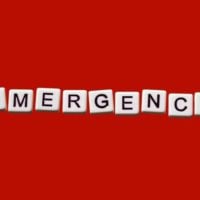Deadline: 23-Jul-25
The Bureau of Land Managements Invasive and Noxious Plant Management Programs work to prevent, detect, inventory, control, and monitor weed populations on public lands.
Program Goals
- Prevention, detection, and eradication of noxious weeds and invasive plant species.
- Development of outreach materials to engage the public in the detection of and to prevent the spread of noxious weeds and invasive plants species.
- Development of methods or modeling to increase the detection and mapping of noxious weeds and invasive plant species.
Strategic Goals
- A successful noxious weed control program is essential to maintaining the health of our native landscapes and consists of the following goals:
- Inventorying and documenting locations of noxious weeds and other invasive species.
- Using an Integrated Pest Management Plan (IPM) approach to determine the most effective method of weed control (herbicides, grazing, mechanical removal etc.).
- Selecting the most effective and targeted herbicide for treatment.
- Stabilization and rehabilitation of disturbed areas.
- Implementation and monitoring of weed control and site rehabilitation measures.
- Conducting post treatment monitoring to determine effectiveness.
- Prioritization and treatment of target undesirable plant species or groups of species to be controlled or contained within a specific geographic area.
- Monitoring and evaluation of treatments, site rehabilitation, outreach activities, and integrated weed management strategies to determine rate of success and to inform future efforts.
- Development and dissemination of public education and outreach activities and materials.
- Promoting public engagement and learning opportunities, through resources education and outreach programs, events, and products.
- Adaptive management for controlling new weed species and use of new and approved treatments.
Funding Information
- Estimated Total Program Funding: $3,000,000
- Award Ceiling: $500,000
- Award Floor: $5,000
Eligibility Criteria
- Eligible Applicants
- State governments
- County governments
- City or township governments
- Public and State controlled institutions of higher education
- Native American tribal governments (Federally recognized)
- Native American tribal organizations (other than Federally recognized tribal governments)
- Nonprofits having a 501(c)(3) status with the IRS, other than institutions of higher education
- Nonprofits without 501(c)(3) status with the IRS, other than institutions of higher education
- Private institutions of higher education
For more information, visit Grants.gov.









































